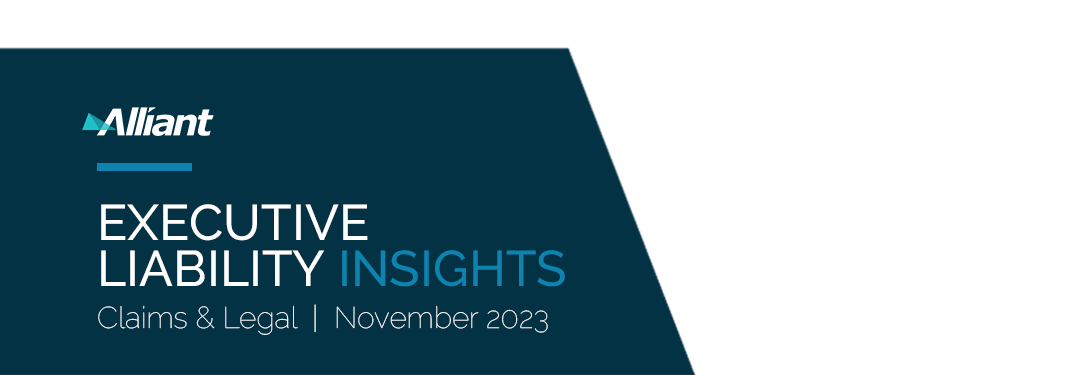
EMPLOYMENT CORNER
DOL PROPOSES RULE TO EXPAND THE REACH OF ERISA


The Department of Labor (the “DOL”) proposed a new Retirement Security Rule that redefined who qualifies as a fiduciary under Employee Retirement Income Security Act (“ERISA”). The definition unveils which investment advisers are subject to ERISA’s standards, so it carries central importance.
The proposed amendment aims to amend the existing five-part test for assessing a fiduciary status. To be deemed a fiduciary under ERISA, the five-part test required the 1) making of an investment recommendation; 2) making such recommendations regularly; 3) making recommendations pursuant to an agreement or an understanding that such advice will provoke reliance; 4) serving of the advice as a ground for investment decision; and 5) tailoring of such advice to accommodate individual needs of the plan. The current proposal removes the need of an agreement thereby expanding the fiduciary classification to those rendering investment advice regularly, even if an agreement does not designate them as fiduciaries and if their investment advice is only one of many factors that investors consider. The amendment also imposes fiduciary obligations on those who acknowledge such obligations or represent themselves as holding such status when making recommendations. Overall, such proposed amendments expand the scope of practices covered by the fiduciary standard and minimize the ability of professionals to lean on disclaimers of a fiduciary status in the context of one-time advice.
Additionally, the DOL suggested revisions to existing prohibited transaction exemptions (“PTE”) which aim to remedy conflicts of interest for investment advisers and impose a balance that would place clients before commissions. The proposed PTE requirements imposed limits on compensation that can be received under the PTE to commissions for service of recommending or effecting the purchase of insurance or similar contracts. As for Insurers, the amended rules do not propose that Insurers become fiduciaries; however, they require policies to adopt procedures ensuring compliance with the Impartial Conduct Standard. In addition, Insurers would be required to annually perform a retrospective review to prevent violations of that standard. An amendment to this rule would apply only to independent producers working with multiple insurers to sell insurance products that are not regulated by the SEC. All other investment advice will require compliance with a different section of the PTE which governs additional disclosure requirements and provides more guidance on the Impartial Conduct Standards Compliance.
CALIFORNIA’S SECTION 533 BARS RECOVERY FOR EPL MATTER
The Wonderful Co., LLC, et al., v. Starr Indemnity and Liab. Co., 22-cv-08249 (C.D. Cal. Oct. 31, 2023).


In a recent decision, a fruit company (the “Company”) sought coverage under its employment practices liability policy for a lawsuit alleging defamation after the Insurer denied coverage in reliance on California Insurance Code Section 533. The underlying defamation suit alleged that the Company told numerous individuals that its employee was engaged in criminal activity. A jury returned a verdict in the employee’s favor, which included a special finding that the Company had acted with malice. The Company paid the judgment in full and sought reimbursement from its Insurer. The Insurer denied indemnity arguing that Section 533 barred coverage. The parties disputed whether Section 533 precluded indemnity coverage for the defamation action.
Under Section 533, an insurer is not liable for a loss caused by the willful act of an insured. “Willful,” in this context, means an act “deliberately done for the express purpose of causing damage,” an “intentional, wrongful act that is inherently and necessarily harmful,” or an act “intentionally performed with knowledge that damage is highly probable or substantially certain to result.” The court determined that, under California law, the act of defamation requires intentional conduct and is “inherently and presumptively damaging.” The court found that, based on the underlying jury conviction’s finding of malice, the Company committed an inherently and necessarily harmful act and thus a “willful” act under Section 533. Therefore, recovery was barred as a matter of law.
This continues a trend we have been following of insurers in California aggressively electing to rely on Section 533 to deny coverage. This is especially disturbing in the D&O context where insureds are routinely, if not exclusively, accused of fraud, intentional and deliberate conduct. It is troubling that insurers can then point to that deliberate conduct as a basis to deny indemnity, even absent a final adjudication which the insurers agree to such standard in the policies.
UNTIMELY NOTICE BARS COVERAGE UNDER EPL POLICY
Av Builder Corp. v. Hous. Cas. Co., 22-cv-55445, 2023 U.S. App. LEXIS 26826 (9th Cir. Oct. 10, 2023).


In a recent coverage dispute, a contracting company (the “Company”) sued its Insurer for denying coverage for an underlying sexual harassment claim. The central issue was the employment practices liability policy’s reporting window, which required the Company to report a claim within either thirty or sixty days from receiving actual notice of a claim. The court assumed, without deciding, that the longer notice period applied, because the notification was untimely regardless of the period.
The Company argued they were not aware of the claim until receiving a draft complaint, which was reported to their Insurer just outside the thirty-day reporting window. However, a series of emails sent to the Company outside of the sixty-day window, referred to sexual harassment and a potential lawsuit. The court determined that under California law, the threat of a lawsuit alone provided actual notice of a claim and triggered the reporting requirement. As the notice was received outside of the longer reporting window, it was untimely, and coverage could be denied.